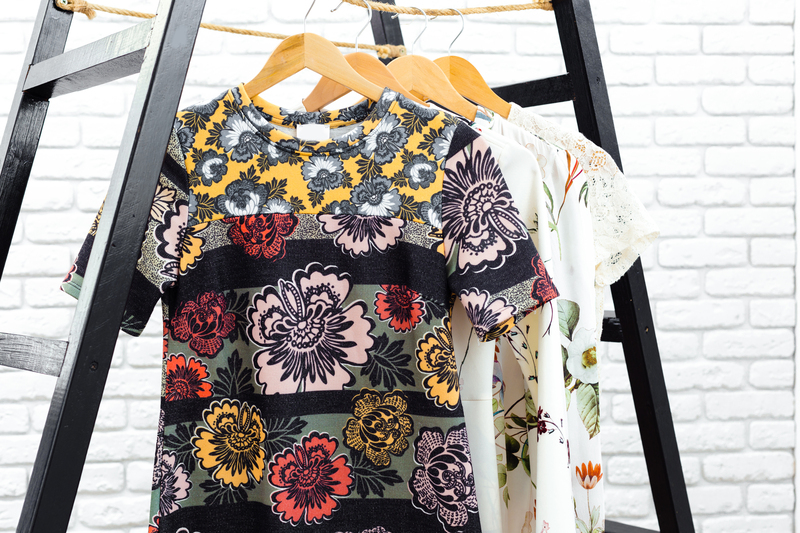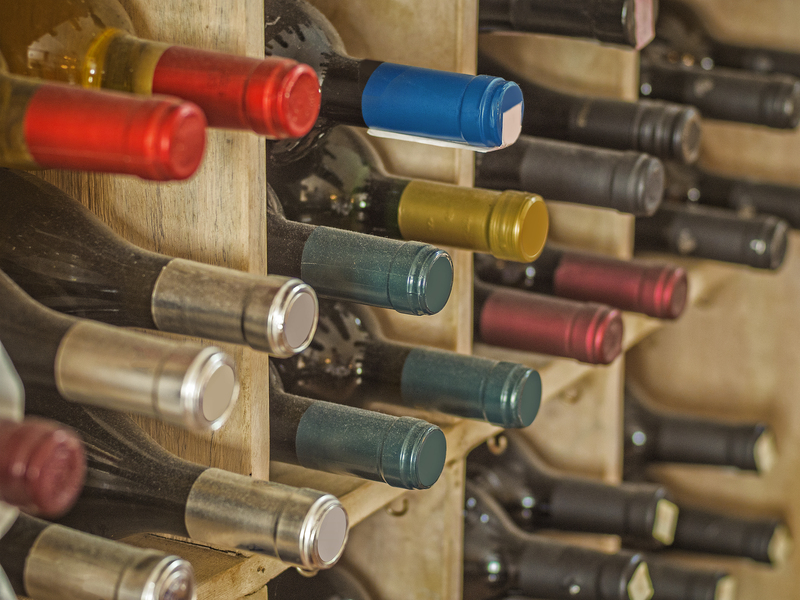Unburden Your Life: The Power of Decluttering in Minimalist Living
Introduction
In today's fast-paced and hyper-connected world, many people are seeking ways to simplify their lives and find greater fulfillment by owning less. The minimalist lifestyle, with its focus on intentional living and reducing clutter, is becoming increasingly popular worldwide. Decluttering sits at the heart of this movement. But why is decluttering essential, and how can embracing minimalist living unburden your mind, home, and spirit? Read on to discover the transformative power of decluttering for a simpler, happier life.

What Is Minimalism?
Minimalism is more than just an aesthetic trend or a sparse way of decorating your living space. At its core, minimalism is a lifestyle that encourages individuals to focus on what truly matters, letting go of excess possessions and distractions. Minimalist living offers the freedom to prioritize experiences, relationships, and personal growth over the constant pursuit of material things.
- Intentional Living: Being mindful of what you allow into your life.
- Simplification: Reducing distractions and excess belongings.
- Quality over Quantity: Choosing fewer but more meaningful possessions.
The Connection Between Decluttering and Minimalism
Decluttering is the essential process of removing unnecessary items from your life. It's about keeping only what adds value and joy, freeing up your time, energy, and space for the things that truly matter. The philosophy of minimalist living begins with this initial act of decluttering.
The Benefits of Decluttering for a Minimalist Lifestyle
Uncluttered living impacts every part of your well-being, from your physical space to your mental and emotional health. Below are several profound benefits of embracing decluttering on your journey to minimalist living.
1. Enhanced Mental Clarity
Living surrounded by clutter can cause your mind to feel similarly overwhelmed. Physical mess can translate directly to mental chaos, leading to increased stress and anxiety. By decluttering your environment, you create an atmosphere that supports focus, peace, and clarity. Numerous studies have shown that tidy, orderly spaces can significantly boost mental health and cognitive function.
2. Reduced Stress and Anxiety
Too much stuff equals too much stress. When your surroundings are disorganized, your mind often follows suit. Minimalistic decluttering takes away visual distractions and the mental burden of caring for numerous possessions, providing a tranquil space where you can truly relax and recharge.
3. More Time and Energy
When you own less, you spend less time cleaning, organizing, and searching for misplaced items. This frees up your schedule and your energy to invest in what truly matters: relationships, goals, passions, and self-care. Minimalist living is all about reclaiming your valuable time by eliminating the unnecessary.
4. Financial Freedom
Decluttering often leads to more mindful shopping habits and discourages impulsive purchases. When you understand the value of owning less, you naturally become more selective about what you bring into your life. This intentional consumption helps save money and can make a big difference in your long-term finances.
5. Environmental Impact
Choosing to live minimally means reducing waste and lessening your carbon footprint. Decluttering encourages donating, recycling, and repurposing, keeping items out of landfills and minimizing the demand for new, resource-intensive products. This makes minimalist living a powerful way to care for the planet.
6. Improved Relationships
When you prioritize experiences over possessions, you foster deeper connections with the people around you. Less time is spent managing stuff; more time is available for loved ones. Minimalism creates space--literally and figuratively--for meaningful interactions and shared memories.
How to Start Decluttering: Practical Steps for Minimalist Living
Decluttering can seem daunting, especially if you've accumulated years' worth of possessions. But the journey towards minimalism doesn't have to be overwhelming. Here's a step-by-step strategy to kick-start your decluttering process and embrace a more minimalist lifestyle.
Step 1: Set Your Intention
Begin by clarifying your goals. Why do you want to declutter? What do you hope to achieve through minimalist living? Write down your intentions, whether it's to reduce stress, spend more time with family, or live in a calmer, more beautiful space. This guiding principle will keep you motivated as you embark on your decluttering journey.
Step 2: Start Small
You don't need to overhaul your entire home in one weekend. Start small--perhaps with a single drawer, a shelf, or a closet. Celebrate each success and use it as momentum to tackle larger areas over time.
Step 3: Use the Four-Box Method
This practical technique helps with decision-making as you sort through your belongings. Label four boxes as follows:
- Keep: Items you use consistently and love
- Donate: Things in good condition that can benefit others
- Sell: Items of value you no longer need
- Discard: Broken, unusable, or expired items
Going through your home room by room with these categories helps you systematically reduce clutter without feeling overwhelmed.
Step 4: Be Ruthless Yet Compassionate
It's natural to feel attached to some possessions, especially those with sentimental value. Ask yourself honest questions about each item: Does it serve a purpose? Does it bring joy? If not, consider letting it go. Be compassionate with yourself--minimalism is a journey, not a race, and letting go can sometimes take time.
Step 5: Organize What Remains
Once you've identified what's truly necessary, organize your items thoughtfully. Ensure every item has a designated place. Utilize storage solutions that support a tidy, functional space, but be wary of overcomplicating your systems.
Step 6: Practice Mindful Acquisition
To maintain your minimalist home, practice conscious consumerism. Before making a new purchase, pause to consider if it aligns with your values and truly adds value to your life. Ask yourself: "Does this replace something?" "Will I use it often?" "Can I borrow or rent instead?"
Decluttering in Different Areas of Life
While most people associate decluttering with their physical possessions, the minimalist approach can be applied to many aspects of life:
1. Digital Declutter
- Clear out old emails and files
- Unsubscribe from unnecessary newsletters
- Organize photos and documents
- Delete unused apps
2. Schedule Simplification
- Prioritize tasks and commitments that align with your values
- Reduce time spent on social obligations that feel draining
- Block off downtime for rest and reflection
3. Emotional Decluttering
- Let go of toxic relationships or set healthy boundaries
- Practice forgiveness and release grudges
- Engage in activities that nourish your soul
4. Financial Decluttering
- Review subscriptions and recurring expenses
- Simplify accounts and automate savings
- Focus on quality investments over frivolous spending
Overcoming Common Decluttering Challenges
It's common to face hurdles when striving for minimalist decluttering. Here's how to overcome some of the most frequently encountered obstacles:
"But I Might Need This Someday..."
Storing items "just in case" creates unnecessary clutter. Challenge yourself: if you haven't used an item in a year, it's likely you don't need it. Optionally, set a designated "maybe box" and revisit items after six months to evaluate their necessity.
"It's Sentimental!"
Sentimentality can keep us tied to possessions we no longer need. Choose the most meaningful mementos, and consider photographing others to preserve the memory while freeing up physical space.
"I Don't Have Time."
Decluttering doesn't require hours each day. Commit to small, focused sessions--just 10 to 15 minutes daily can create remarkable progress over weeks.
Minimalist Decluttering: More Than Just a Trend
For many, decluttering isn't just about tidy closets or immaculate shelves--it's about cultivating a lifestyle of greater purpose and intentionality. A well-decluttered home fosters creativity and peace. A minimalist calendar encourages focus and meaningful activity. An uncluttered mind allows for deeper connections with oneself and others.
Minimalist living encourages us to ask: What truly matters? What brings joy and fulfillment? The power of decluttering lies not just in the removal of the excess, but in creating space for what's truly valuable.

Minimalism and Well-Being: Real-Life Transformations
Thousands of people worldwide have experienced profound life changes through minimalist decluttering. From retirees seeking simplicity in their golden years, to busy families desiring more quality time, the benefits are universal. Many report:
- Decreased stress levels
- Higher productivity and focus
- Improved sleep quality
- More meaningful relationships and experiences
- Greater satisfaction with less
The journey to a minimalist, decluttered life is unique for everyone, but the rewards--a sense of lightness, freedom, and contentment--are universally attainable.
Conclusion: Start Your Decluttering Journey Today
The power of decluttering in minimalist living cannot be overstated. By intentionally releasing what no longer serves you, you create space--physically, mentally, emotionally--for a richer, more fulfilling life. Whether you start with a single sock drawer or a complete home overhaul, every step you take towards minimalist living is a step towards unburdening your life and reclaiming your peace of mind.
Are you ready to experience the freedom of a decluttered life? Embrace the minimalist philosophy and watch as your surroundings, your schedule, and your spirit all become lighter. The journey begins with one item, one room, one mindful choice at a time.
No matter where you are on your minimalism path, remember: true abundance is found not in having more, but in needing less.